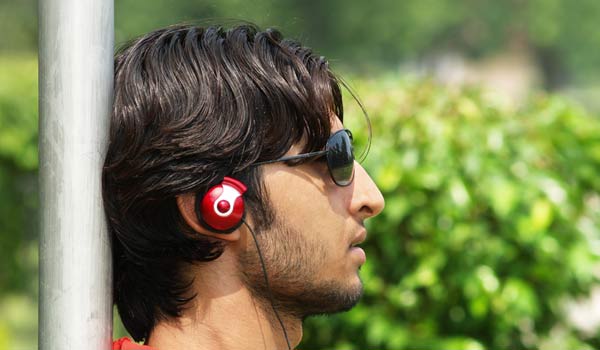How Loud Can You Play Music Without Damaging Your Hearing?

If you're listening to Katy Perry pop or The Red Hot Chili Peppers rock and have to raise your voice to be heard over the music, it's time to turn the volume down. Listening to loud music for too long can damage sensitive structures in the inner ear and lead to permanent hearing loss.
Today, one in five American teens already have some hearing loss, according to a study in August 18 issue of the Journal of the American Medical Association. That's a 30 percent increase from 15 years ago.
A person exposed to noise levels at 85 decibels or higher for a prolonged period of time is at risk for hearing loss.
How loud is too loud?
You shouldn't listen to music , or be exposed to any noise, at 85 decibels for more than 8 hours at a time, said Gordon Hughes, program officer of clinical trials at the National Institute on Deafness and Other Communication Disorders (NIDCD). If you've got the volume cranked to 88 decibels, then cut your listening time down to 4 hours.
At its loudest, an MP3 player pumps out 105 decibels that's100 times more intense than 85 decibels.
The trouble is, you may not feel any symptoms or know that you're putting your ears at risk. Young ears are more resilient than older ones.
Get the world’s most fascinating discoveries delivered straight to your inbox.
"It's more difficult for kids to perceive the noxious effect of pollution noise," Hughes said.
What can you can do protect your hearing?
"One way you can tell if your music is too loud is if you're talking to a friend and you have to raise your voice to be heard," Hughes said. Normal conversation is around 60 decibels. "That's a crude but helpful way to estimate whether ambient noise is too loud."
You can do online research about your MP3 player to find where the 85-decibel mark is, and keep your volume turned below it.
At rock concerts, keeping your distance from the speakers and wearing some kind of protection can shield your ears. Inserts made of foam are the most common, says Hughes, but the least helpful. "They take the edge off."
An ear muff, or protective head phone will also offer some quiet. But the best option, Hughes said, is to get a custom fit ear mold that fits into your ear canal and can cut down an estimated 60 decibels.
Be on the lookout for signs that you've been listening to tunes too loud. You may notice sounds are muffled and that it's harder to hear. You may also feel pressure or a blocked sensation, and ringing in the ear . "These are hallmarks of temporary hearing damage," Hughes said.
About 26 million Americans between the ages of 20 and 69 have lost the ability to hear high-frequencies from overexposure to loud noises at work or during leisure activities, like turning up their music too loud, according to the NIDCD.
"Prevention is really the name of the game," Hughes said. "Once you've got a hearing impairment from noise, the only thing you can do is consider a hearing aid."
- Why are Ears Shaped So Strangely?
- Is It Safe to Hold in a Sneeze?
- Can You Really Laugh Until You Cry?
Got a question? Email it to Life's Little Mysteries and we'll try to answer it. Due to the volume of questions, we unfortunately can't reply individually, but we will publish answers to the most intriguing questions, so check back soon.


